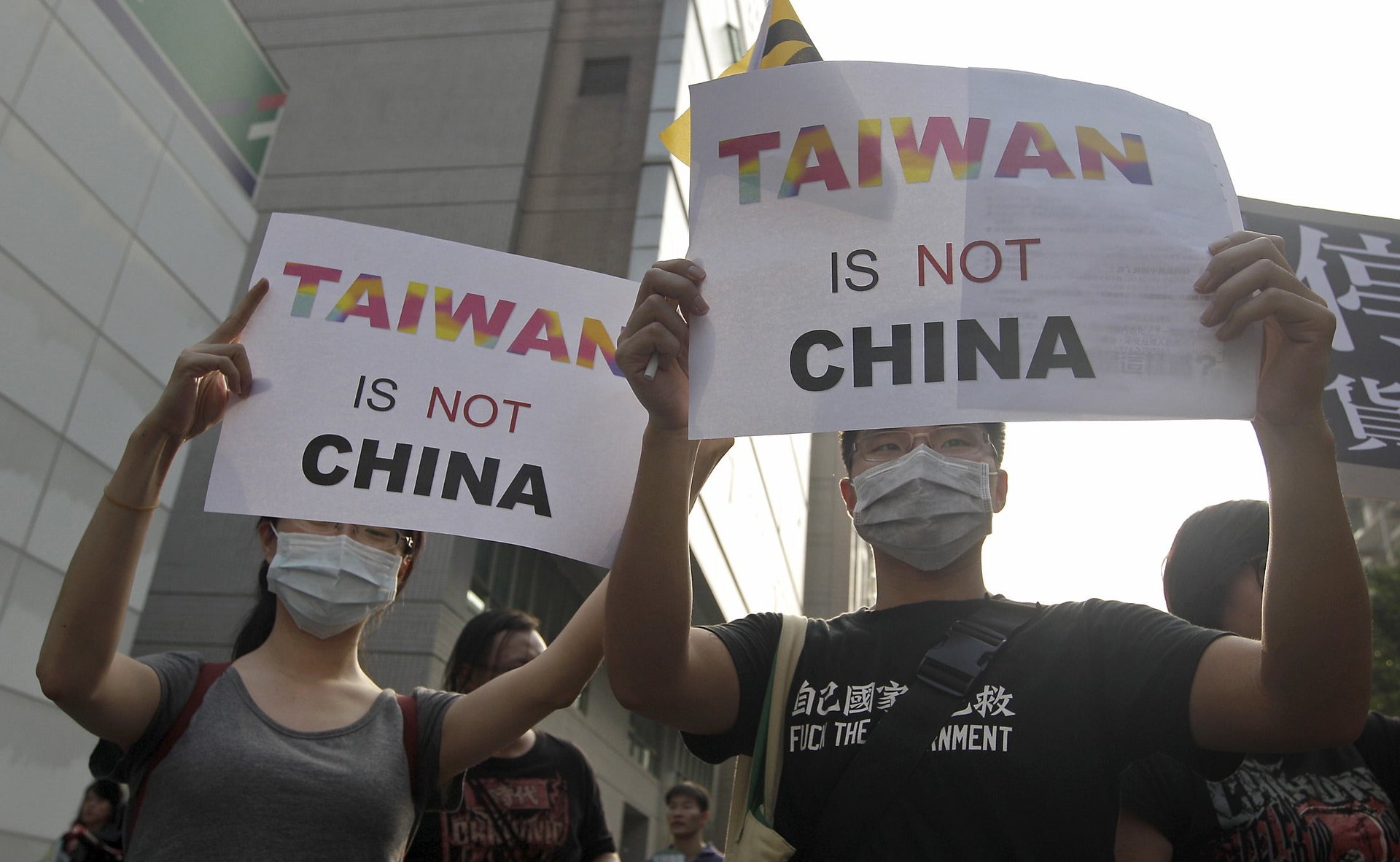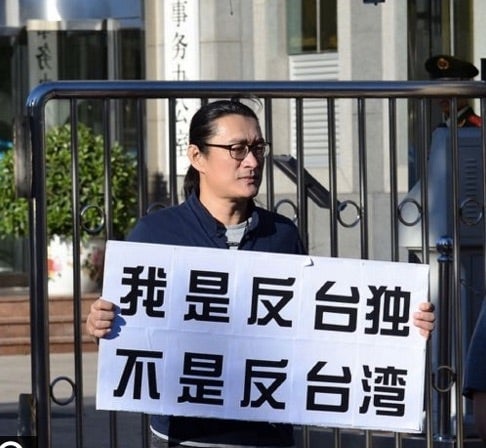Why a washed-up pop star is suddenly the most hated man in Taiwan
With an approval rating of 25%, Taiwan’s soon-departing president Ma Ying-jeou is one of the island’s most disliked public figures (link in Chinese). But he doesn’t hold a candle to Michael Huang.


With an approval rating of 25%, Taiwan’s soon-departing president Ma Ying-jeou is one of the island’s most disliked public figures (link in Chinese). But he doesn’t hold a candle to Michael Huang.

The 53-year-old pop singer was born in Taiwan, but lately resides mostly in mainland China. Since early January, he’s been steadily sending out posts on Sina Weibo accusing Chou Tzu-yu, a teenage Taiwanese pop star, of advocating for Taiwan’s independence. China views Taiwan as one of its provinces, and sees unification as a matter of national pride. Any claims made to suggest Taiwan is an independent country are regularly subject to censorship on the mainland.
After sending out several posts lambasting Chou for carrying a Taiwan flag during a live performance, Huang announced he “reported” her to authorities at Sina Weibo. The social network lets users report instances of “harmful information”—which can be interpreted to mean any messages that conflict with Communist Party politics—by pressing a button to contact a special department at the social network.
It’s not clear if Huang’s alleged “reporting” had any direct impact on Chou, but the surrounding media attention did. Chinese news outlets published pieces on Huang’s posts, leading some commenters to demand a television station in Anhui cancel an upcoming performance (link in Chinese) with Chou’s group Twice. The station obliged (link in Chinese).
Days later, just before Taiwan prepared to vote in its presidential elections, Chou appeared in a YouTube video tearfully apologizing for her actions. “There is only one China,” she said. “The cross-straits territories are one in the same, and I am proud to consider myself thoroughly Chinese.
Her management, apparently, feared losing access to mainland fans and forced her into the apology. Taiwan residents of all political affiliations expressed sympathy for Chou.
Huang rejoiced.
“Chou Tzu-yu has finally come out to apologize,” he wrote on Sina Weibo on Jan. 15, not long after her video hit YouTube. “The day we have long waited for has finally arrived. We’ve once again won over a child’s proper respect for one’s motherland. People of this motherland have once again met great success in the fight against Taiwan separatism.” His Weibo account’s history has since been scrubbed.
Huang’s sentiments wouldn’t sound controversial were he not from Taiwan himself. The singer was born in 1962 in Hsinchu county, about 80 km (50 miles) from Taipei. He began his career in Taiwan, releasing his first hit record, New Dream for a Pair of Butterflies, on the local label What’s Music. Below is a video of him performing a Taiwanese aboriginal folk song on Chinese television:
On his Weibo account, Huang has repeatedly stressed how he himself hails from Taiwan. He claims his criticism of so-called Taiwanese separatism stems from his love for the island. One oft-circulated photo shows him holding a sign with the words, “I don’t oppose Taiwan, I oppose Taiwanese independence.”
Recently though, his method of expressing his love for Taiwan is bullying other Taiwanese.
In September 2015, Huang took to Weibo to blast Tia Chung, a 24-year-old Taiwanese activist, for using a derogatory term for Chinese people popular during the Japanese colonial era. Huang claimed he reported her to China’s Taiwan affairs office (link in Chinese), a government branch tasked with overseeing cross-strait relations.
Huang also blasted popular Taiwanese singer Show Lu on Weibo for allegedly opposing (link in Chinese) the Cross-Strait Service Trade Agreement—a controversial pact between Taiwan and mainland China that helped spark island-wide youth protests in 2014.
Such actions earned Huang criticism in Taiwan. His attacks on Chou dented his reputation further. Not long after Chou’s apology video hit the internet, a Taiwanese karaoke chain announced it would permanently remove Huang’s songs from its catalog. A Taiwanese TV program popular on both sides of the strait canceled his upcoming appearance (link in Chinese). And a team of human rights lawyers are reportedly filing a lawsuit (link in Chinese) against him and Chou’s Korean management.
The roots of Huang’s extremism aren’t known. Most Taiwan residents who ardently support unification have ties to the nationalist regime that fled to Taiwan from the mainland in the 1940s. But it’s not clear if Huang’s family background fits this trend. Nowadays it’s frowned upon for Taiwanese to ascribe one’s politics to family origin, and reporters have avoided the subject.
Huang has reacted to the media frenzy with gleeful defensiveness. In response to backlash from Taiwan, Huang announced that he’ll return to the island on Feb. 3 to hold a press conference. Taiwanese internet users have created a Facebook group to coordinate a mob rush and pelt him with insults at the airport upon his arrival. It has 10,000 attendees right now.
“He’s never been more famous before in his life than he is now,” wrote one commenter. “This is probably the height of his career.”